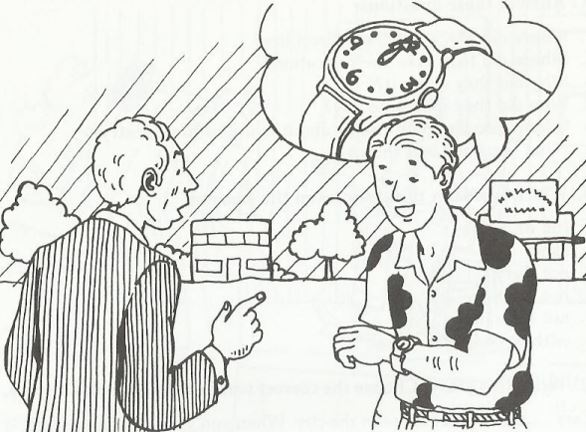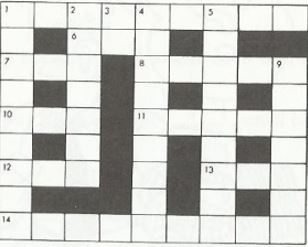

Grammar


Tenses


Present

Present Simple

Present Continuous

Present Perfect

Present Perfect Continuous


Past

Past Simple

Past Continuous

Past Perfect

Past Perfect Continuous


Future

Future Simple

Future Continuous

Future Perfect

Future Perfect Continuous


Parts Of Speech


Nouns

Countable and uncountable nouns

Verbal nouns

Singular and Plural nouns

Proper nouns

Nouns gender

Nouns definition

Concrete nouns

Abstract nouns

Common nouns

Collective nouns

Definition Of Nouns


Verbs

Stative and dynamic verbs

Finite and nonfinite verbs

To be verbs

Transitive and intransitive verbs

Auxiliary verbs

Modal verbs

Regular and irregular verbs

Action verbs


Adverbs

Relative adverbs

Interrogative adverbs

Adverbs of time

Adverbs of place

Adverbs of reason

Adverbs of quantity

Adverbs of manner

Adverbs of frequency

Adverbs of affirmation


Adjectives

Quantitative adjective

Proper adjective

Possessive adjective

Numeral adjective

Interrogative adjective

Distributive adjective

Descriptive adjective

Demonstrative adjective


Pronouns

Subject pronoun

Relative pronoun

Reflexive pronoun

Reciprocal pronoun

Possessive pronoun

Personal pronoun

Interrogative pronoun

Indefinite pronoun

Emphatic pronoun

Distributive pronoun

Demonstrative pronoun


Pre Position


Preposition by function

Time preposition

Reason preposition

Possession preposition

Place preposition

Phrases preposition

Origin preposition

Measure preposition

Direction preposition

Contrast preposition

Agent preposition


Preposition by construction

Simple preposition

Phrase preposition

Double preposition

Compound preposition


Conjunctions

Subordinating conjunction

Correlative conjunction

Coordinating conjunction

Conjunctive adverbs


Interjections

Express calling interjection


Grammar Rules

Passive and Active

Preference

Requests and offers

wishes

Be used to

Some and any

Could have done

Describing people

Giving advices

Possession

Comparative and superlative

Giving Reason

Making Suggestions

Apologizing

Forming questions

Since and for

Directions

Obligation

Adverbials

invitation

Articles

Imaginary condition

Zero conditional

First conditional

Second conditional

Third conditional

Reported speech


Linguistics

Phonetics

Phonology

Linguistics fields

Syntax

Morphology

Semantics

pragmatics

History

Writing

Grammar

Phonetics and Phonology

Semiotics


Reading Comprehension

Elementary

Intermediate

Advanced


Teaching Methods

Teaching Strategies

Assessment
What time is it?
المؤلف:
L.A Hill
المصدر:
Elementary Anecdotes In American English
الجزء والصفحة:
54-1
8/10/2022
773

Don was traveling around the country, and one day he was in a hotel in a small town. Lunch was served from twelve-thirty to one-thirty. Don went out for a walk in the morning but he forgot to put on his watch. He walked for a long time, and then he saw a young man in the street, so he said to him, “Excuse me, can you please tell me the time?"
The young man looked at his watch and then answered, “It's twelve o'clock."
Don wasn't happy when he heard this, and said, "Isn't it later than that?" He was hungry, and he wanted his lunch.
"No," the young man answered. "It never gets later than twelve o'clock in our town."
Don was surprised and said, "That's interesting. What do you mean?"
"Well," the young man answered, "whenever it becomes twelve o'clock, we always start from the beginning again-one o'clock, two o'clock. ..."
A Answer these questions:
- Why did Don ask the young man the time?
- What did the young man answer?
- What did Don ask then?
- What did the young man answer this time?
- Why didn't it get later?
B Do this puzzle:
Across:
1. The people in the small town always started from the _______ again after reaching twelve o'clock.
6. After twelve o'clock, the next hour was ______ o'clock.
7. Also.
8. Don left his ________ in the hotel.
10. Perhaps somebody will _______ Don and steal his watch.
11. Places with grass and trees in a town.
12. Don lent me $5 last week, so now I _____ him $5.
13. Ships travel across the _______.
14. Don was _______ when the young man said, "It never gets later than twelve o'clock in our town."

Down:
1. You wash in these rooms.
2. Don said this to the young man when he left him.
3. There was a bathroom ______ Don's room in the hotel.
4. You read this every day.
5. When Don hears something new, it _______ him.
9. Don is married; he is the _______ of my friend, Mary.
C Which of the answers are correct? Write the questions and the correct answers.
1. Was Don wearing a watch when he went out for a walk?
- No, he wasn't.
- Yes, he was.
2. What did Don want from the young man?
- His watch.
- The correct time.
3. Why wasn't Don happy when the young man said, "It's twelve o'clock"?
- Because he wanted his lunch.
- Because his watch was wrong.
4. When did lunch begin at the hotel?
- At eleven-thirty.
- At twelve-thirty.
5. What hour does a watch show after twelve o'clock?
- One o'clock.
- Thirteen o'clock.
 الاكثر قراءة في Elementary
الاكثر قراءة في Elementary
 اخر الاخبار
اخر الاخبار
اخبار العتبة العباسية المقدسة

الآخبار الصحية















 قسم الشؤون الفكرية يصدر كتاباً يوثق تاريخ السدانة في العتبة العباسية المقدسة
قسم الشؤون الفكرية يصدر كتاباً يوثق تاريخ السدانة في العتبة العباسية المقدسة "المهمة".. إصدار قصصي يوثّق القصص الفائزة في مسابقة فتوى الدفاع المقدسة للقصة القصيرة
"المهمة".. إصدار قصصي يوثّق القصص الفائزة في مسابقة فتوى الدفاع المقدسة للقصة القصيرة (نوافذ).. إصدار أدبي يوثق القصص الفائزة في مسابقة الإمام العسكري (عليه السلام)
(نوافذ).. إصدار أدبي يوثق القصص الفائزة في مسابقة الإمام العسكري (عليه السلام)


















